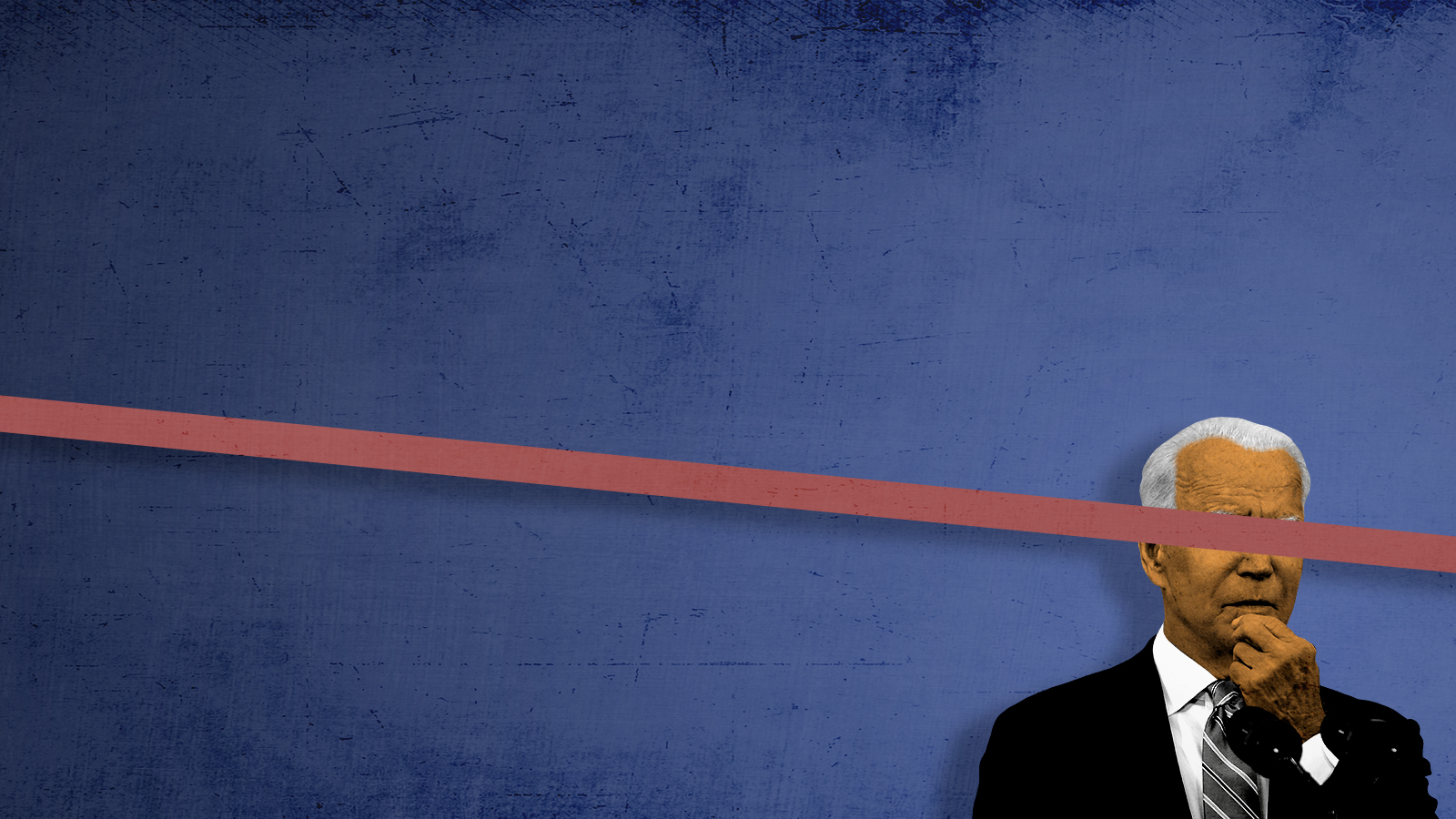Will infrastructure finally bury Biden's bipartisanship promise?


A free daily email with the biggest news stories of the day – and the best features from TheWeek.com
You are now subscribed
Your newsletter sign-up was successful
Tuesday marks the sixth-month anniversary of President Biden's inauguration, and the bipartisan infrastructure deal that he has spent half his presidency pursuing still isn't coming together. Republicans have balked at a provision to buck up IRS tax enforcement in order to help pay for the package, but Senate Democrats are planning to move ahead Wenesday with the first procedural votes on the still-incomplete bill. Unsurprisingly, GOP senators are promising that effort will fail.
The president is frustrated.
"We should be united on one thing — passage of the bipartisan infrastructure framework, which we shook hands on," Biden said Monday. "We shook hands on it."
The Week
Escape your echo chamber. Get the facts behind the news, plus analysis from multiple perspectives.

Sign up for The Week's Free Newsletters
From our morning news briefing to a weekly Good News Newsletter, get the best of The Week delivered directly to your inbox.
From our morning news briefing to a weekly Good News Newsletter, get the best of The Week delivered directly to your inbox.
His lament is understandable, even if this moment was foreseeable from the beginning. The bipartisan infrastructure bill has never been about the infrastructure, really — most of the particulars could be passed as part of a Democrats-only reconciliation package, if needed. Which means the bill is really about the bipartisanship part. The big question, then, is what the bill's failure would mean for Biden's whole approach to governance.
After all, Biden has spent a good chunk of both his presidential campaign and his presidency publicly wagering that the two parties can still work together for the national good, if only somebody in leadership tries hard enough and acts reasonable enough. "Our politics has gotten too ugly, too mean, too divisive," Biden told Iowa primary voters last year. "With this president [Trump] out of the way, we in fact can begin to change the dynamic." That was always wrong — the polarization trends are bigger and tougher to crack than Biden's ability to handshake his way out of them — but it felt good. When that promise is gone, what does this president have left?
Without the imperative to work for bipartisan cooperation, Biden and Democrats could probably govern in more straightforward fashion while they still have majorities in both houses of Congress — though with the filibuster still in place, there is only so much they can do. But if the bipartisan infrastructure bill does indeed fail, one of the animating purposes of Biden's presidency will have taken a big hit.
A free daily email with the biggest news stories of the day – and the best features from TheWeek.com
Joel Mathis is a writer with 30 years of newspaper and online journalism experience. His work also regularly appears in National Geographic and The Kansas City Star. His awards include best online commentary at the Online News Association and (twice) at the City and Regional Magazine Association.
-
 6 of the world’s most accessible destinations
6 of the world’s most accessible destinationsThe Week Recommends Experience all of Berlin, Singapore and Sydney
-
 How the FCC’s ‘equal time’ rule works
How the FCC’s ‘equal time’ rule worksIn the Spotlight The law is at the heart of the Colbert-CBS conflict
-
 What is the endgame in the DHS shutdown?
What is the endgame in the DHS shutdown?Today’s Big Question Democrats want to rein in ICE’s immigration crackdown
-
 Big-time money squabbles: the conflict over California’s proposed billionaire tax
Big-time money squabbles: the conflict over California’s proposed billionaire taxTalking Points Californians worth more than $1.1 billion would pay a one-time 5% tax
-
 The ‘mad king’: has Trump finally lost it?
The ‘mad king’: has Trump finally lost it?Talking Point Rambling speeches, wind turbine obsession, and an ‘unhinged’ letter to Norway’s prime minister have caused concern whether the rest of his term is ‘sustainable’
-
 Did Alex Pretti’s killing open a GOP rift on guns?
Did Alex Pretti’s killing open a GOP rift on guns?Talking Points Second Amendment groups push back on the White House narrative
-
 Washington grapples with ICE’s growing footprint — and future
Washington grapples with ICE’s growing footprint — and futureTALKING POINTS The deadly provocations of federal officers in Minnesota have put ICE back in the national spotlight
-
 Trump’s Greenland ambitions push NATO to the edge
Trump’s Greenland ambitions push NATO to the edgeTalking Points The military alliance is facing its worst-ever crisis
-
 Why is Trump threatening defense firms?
Why is Trump threatening defense firms?Talking Points CEO pay and stock buybacks will be restricted
-
 The billionaires’ wealth tax: a catastrophe for California?
The billionaires’ wealth tax: a catastrophe for California?Talking Point Peter Thiel and Larry Page preparing to change state residency
-
 Trump considers giving Ukraine a security guarantee
Trump considers giving Ukraine a security guaranteeTalking Points Zelenskyy says it is a requirement for peace. Will Putin go along?
